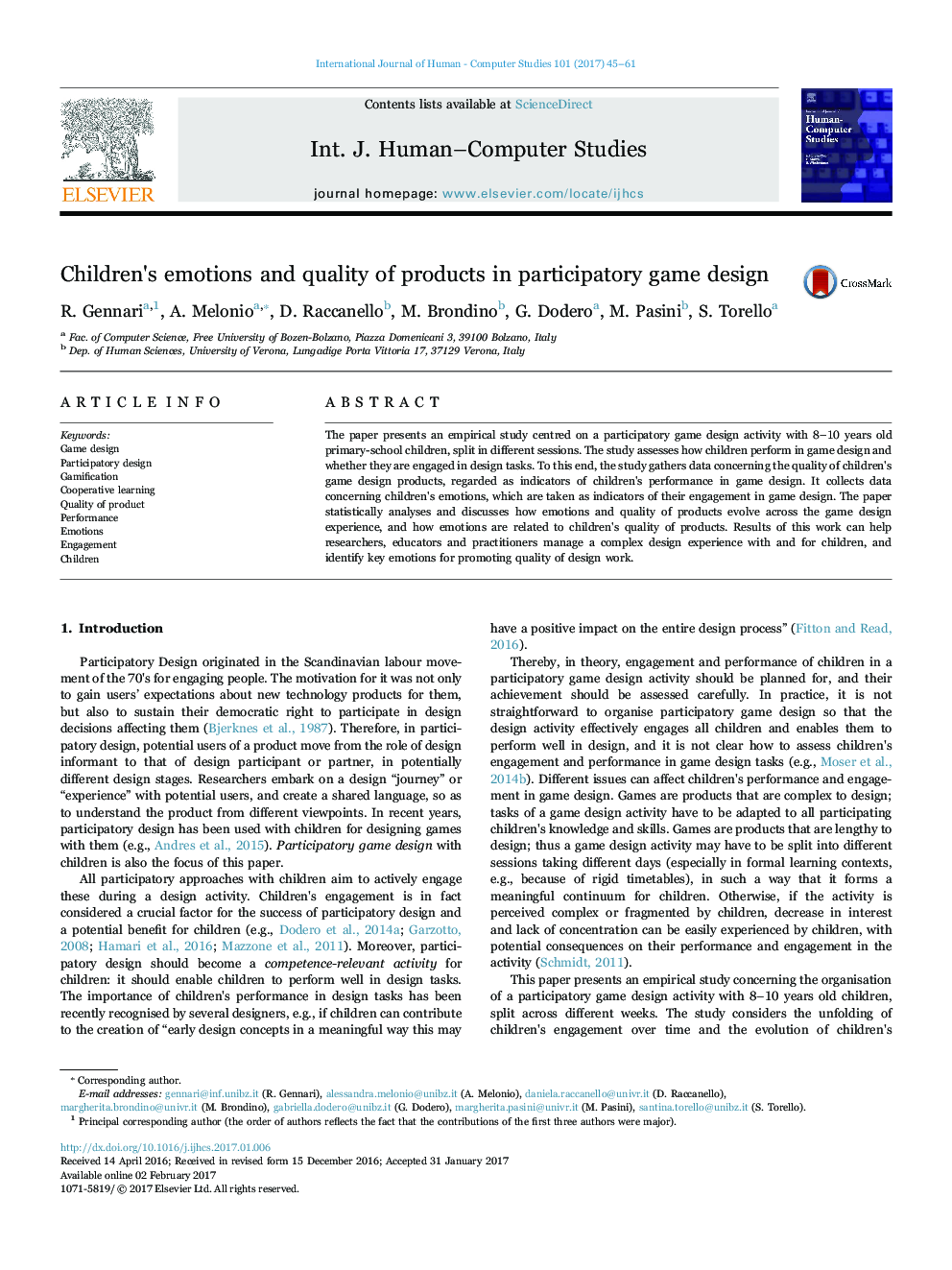| Article ID | Journal | Published Year | Pages | File Type |
|---|---|---|---|---|
| 4945816 | International Journal of Human-Computer Studies | 2017 | 17 Pages |
Abstract
The paper presents an empirical study centred on a participatory game design activity with 8-10 years old primary-school children, split in different sessions. The study assesses how children perform in game design and whether they are engaged in design tasks. To this end, the study gathers data concerning the quality of children's game design products, regarded as indicators of children's performance in game design. It collects data concerning children's emotions, which are taken as indicators of their engagement in game design. The paper statistically analyses and discusses how emotions and quality of products evolve across the game design experience, and how emotions are related to children's quality of products. Results of this work can help researchers, educators and practitioners manage a complex design experience with and for children, and identify key emotions for promoting quality of design work.
Keywords
Related Topics
Physical Sciences and Engineering
Computer Science
Artificial Intelligence
Authors
R. Gennari, A. Melonio, D. Raccanello, M. Brondino, G. Dodero, M. Pasini, S. Torello,
